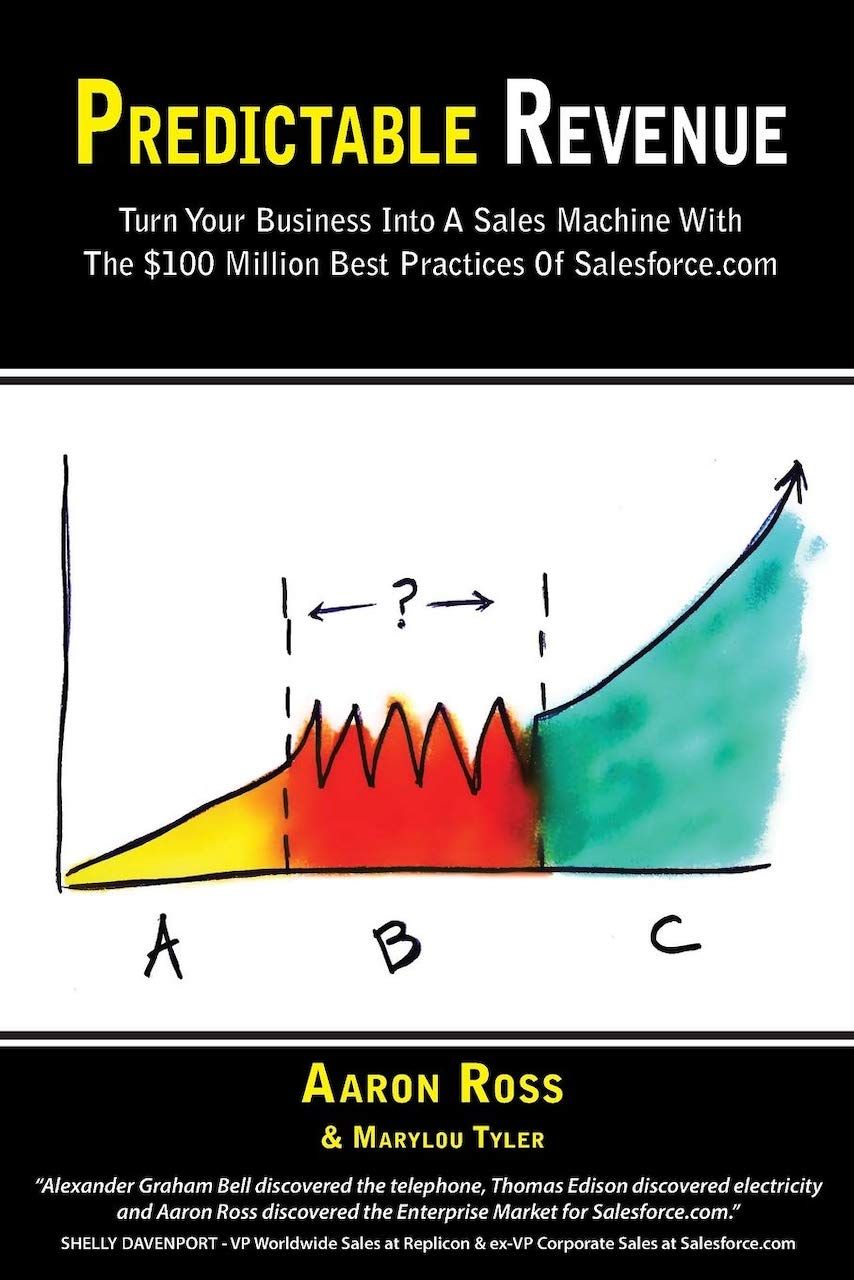Rating: 3/10

See book on Amazon.com.
High level thoughts
This book claims to focus on making your revenue generation machine predictable so that your business can scale controllably via the following core ideas:
- Create one team that is dedicated to source new business (SDR/BDR, Market Response Reps), and make another team responsible for closing the deals (Account Executives, CSM's, Account Managers).
- Coach your sales reps to write concise emails and use a couple of tricks such as asking your initial contact to forward the email to the right person.
Just like Salesforce did it... or not. This book oversimplifies way too many things, and having had it in my reading list for a long time I came for the raw details, but they weren't there.
It is clear that this book served as inspiration for many companies that split up their sales teams into what are now widely known as SDR/BDR roles focusing on pipeline generation and AEs/closers who focus mainly on bringing the deals across the finishing line. If changing an entire industry is how you measure success, Aaron Ross definitely achieved it through the buzz created by this book.
As one Goodreads reviewer put it well, the methods here will work for companies that sell products in 1K USD to 100K USD range. For smaller deals setting up such a sales organization is too expensive. If on the other hand the deals are larger than that, you'll probably end up pissing off and losing most of your customers.
There might be a couple of other good ideas here and there, but I'm sure that most of those you've probably read by now in any other sales or business book.
Things worth a recap
Does your executive team know how much new qualified pipeline does your company need to generate per month? This is the 2nd most important metric for your management to understand, monitor and improve right after closed business.
What the world's greatest managers do differently? Outlining 12 key measures for employees:
- Do I know what is expected of me at work?
- Do I have the materials and equipment I need to do my work right?
- At work, do I have the opportunity to do what I do best every day?
- In the last seven days, have I received recognition or praise for good work?
- Does my supervisor, or someone at work, seem to care about me as a person?
- Is there someone at work who encourages my development?
- At work, do my opinions seem to count?
- Does the mission/purpose of my company make me feel like my work is important?
- Are my co-workers committed to doing quality work?
- Do I have a best friend at work?
- In the last six months, have I talked with someone about my progress?
- At work, have I had opportunities to learn and grow?
The one thing that I found really useful
The book crystallized a note that I will definitely carry with me in the future:
Aim to set up and track the following metrics in your sales force automation system's dashboards:
- New leads created per month (+ which source they are generated from)
- Conversion rate of leads to opportunities
- Number of, and pipeline value of, qualified opportunities created per month (this is the most important leading indicator of revenue)
- Conversion rates of opportunities to closed deals
- Booked revenues in three categories: New Business, Add-On Business and Renewal Business
Get commitment from across the entire company and make these metrics a priority on an executive level.
Conclusion
If you have read just one or two typical sales or business books from the past couple of years, don't expect to find anything earth shattering or even worthwhile from this one.
For a business owner this book is a very surface level exploration and is not likely to offer more than a couple of basic ideas that may or may not be worth implementing. Seasoned sales reps can sharpen their skills by reading some other great books that I would like to recommend you later on.
On the other hand someone who is completely new to sales may find this book a good means to gain a surface level understanding on how modern companies aim to grow.
